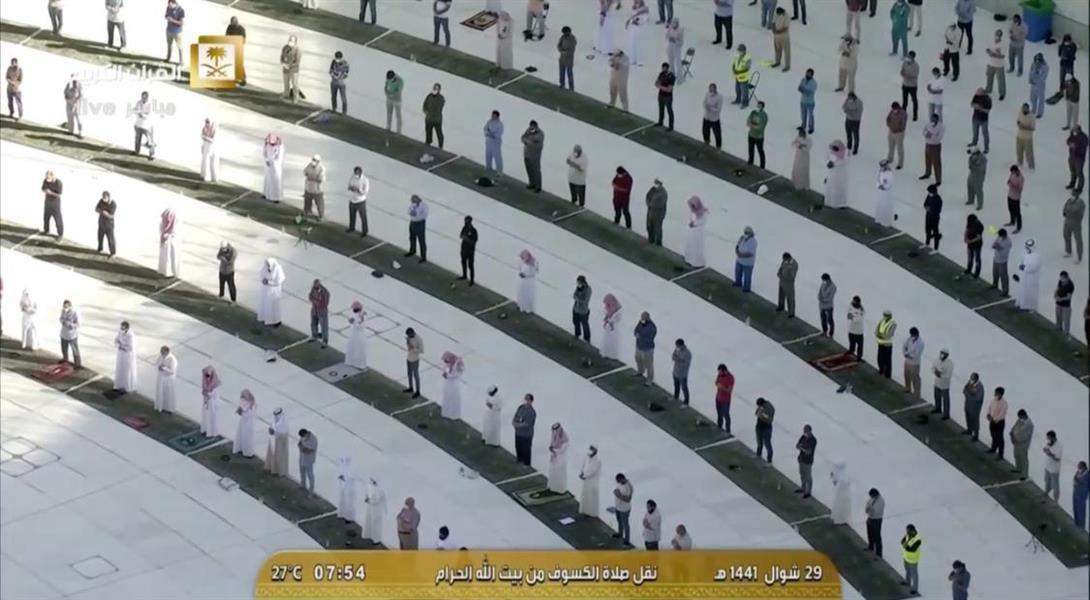Haj 2020 allowed for pilgrims residing in Saudi Arabia; international pilgrims not permitted
- Only residents of Saudi Arabia will be allowed to perform Haj this year
- Restrictions will be in place for pilgrims
- Haj has never been cancelled since 1932
- Ealier cancellation and disruptions due to politics, conflicts and disease in earlier centuries
After much deliberation in light of the global COVID19 pandemic, the Saudi government in a historic decision on 22 June, has decided to open the gates for Haj 2020 ONLY for those residing in Saudi Arabia. The Haj pilgrimage for 2020 will take place between 28 July - 2 August this year.
This is an excerpt (translation) of the statement issued by the Ministry of Health of the Kingdom of Saudi Arabia.
Hence, the Saudi Arabian government, which is also the custodian of the two holy masjids in Mecca and Medina, has taken this calculated and bold step to maintain the sanctity of the nearly 1,400 year old pilgrimage, which has never been cancelled since the founding of the Saudi Arabian kingdom in 1932.
Instances when the Haj pilgrimage was cancelled or disrupted
As per Islamic scholars, the Haj pilgrimage has been altered in the past, due to armed conflicts, political conflicts or disease.
ARMED CONFLICT
One of the recorded significant interruptions of the Haj pilgrimage took place in AD 930 when a small sect of Ismailis known as Qarmatians, raided Mecca as they believed that the pilgrimage was a pagan ritual. They absconded with the black stone (Hajr-e-aswad) from Kaaba and took it to their stronghold, which is the modern day Bahrain. Haj was suspended untill the Abbasids, who ruled the over a vast empire in region paid a ransom for it 20 years later.
POLITICAL CONFLICTS
A few other interruptions to the Haj, which were necessarily not cancellations, but restrictions due to political conflicts took place a couple pf decades later. Between AD 983 - 991, the political tug-of-war between Fatimid dynasty in Egypt and Abbasid dynasty in Iraq and Syria prevented pilgrims of various nationalities from performing the Haj.
After the fall of the Fatimid dynasty in AD 1168, Egyptians could not enter Hijaz. It is also said that no one from Baghdad could enter the region to perform Haj after the city fell to Mongol invasion in AD 1258.
Napoleans invasion to check on British colonial influence in the region, prevented many pilgrims from Haj between AD 1798 - 1801.
DISEASE
The outbreak of plague in AD 967 was the first time that the Haj had to be cancelled. Drought and famine caused the Fatimid rulers to cancel overland Haj routes in AD 1048.
Cholera outbreaks time and again during the 19th century caused deaths of thousands of pilgrims during the Haj. One instance was in AD 1858, when cholera outbreak in Mecca and Medina caused thousands of Egyptians to flee to Egypts Red Sea border where they were quarantined before being allowed in. Outbreak of cholera in India in 1831 claimed thousands of pilgrims lives on their way to perform Haj.
RECENT YEARS
In 2012-13 Saudi authorities encouraged the ill and elderly not to undertake the Haj over concerns of Middle East Respiratory Syndrome (MERS). In 2018, 1.8million muslims in Qatar were not allowed to perform Haj following political boycott of the Middle eastern country, by Saudi Arabia and three other countries on various disagreements..
Source: The Conversation, Australia edition (Author: Ken Chitwood)
To join us on Facebook Click Here and Subscribe to UdaipurTimes Broadcast channels on GoogleNews | Telegram | Signal



